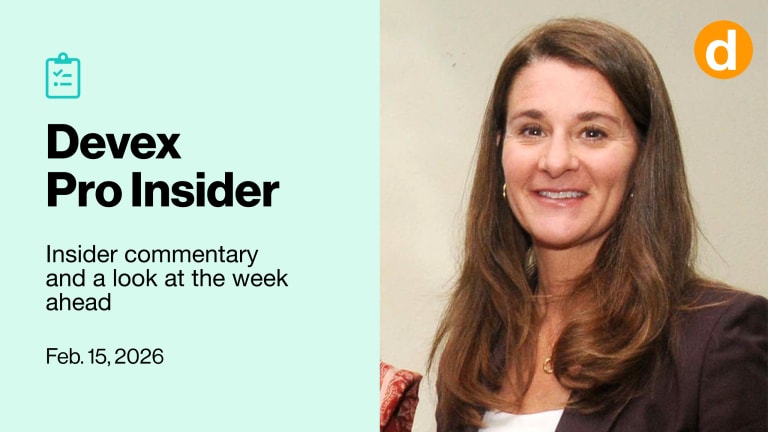
Indra Nooyi, Sheryl Sandberg and Irene Rosenfeld were in the top 10 of Forbes’ 100 most powerful women in the world in 2011.
They serve as executives at large major corporations: Nooyi is chairman and chief executive at PepsiCo, Sandberg is chief operating officer at Facebook, and Rosenfeld is chairman and chief executive at Kraft Foods. But not all women get to where these powerful women have gone — even if they have potential.
Gender equality and women empowerment are among the U.N. Millennium Development Goals. The goal by 2015 is to eliminate gender disparity in all levels of education and improve the share of women in wage employment in nonagricultural jobs as well as the proportion of women holding seats in national parliament.
But the latest U.N. data on MDGs show that the percentage of women in nonagricultural jobs has not risen by much: It stood at 40 percent in 2009 — up only 5 percent from 1990.
Progress is particularly low in northern Africa, and in southern and western Asia. The numbers regarding women in senior positions at private companies and as business owners aren’t encouraging either. Data from the Organization for Economic Cooperation and Development in 2010 reveal that only 2 percent of working women are employers. In addition, only one in 10 board seats at listed companies in OECD countries in 2009 are occupied by women.
The numbers are also pretty low in India, according to a joint report from the Cherie Blair Foundation for Women and the International Center for Research on Women, “Connectivity: How Mobile Phones, Computers and the Internet Can Catalyze Women’s Entrepreneurship.” The report cites the Corporate Gender Gap Report in 2010, which says that at 23 percent, India has the lowest percentage of female employees among private sector workers in the world’s 20 largest economies.
This disparity, not only in India but even in the European Union, has led the western bloc to start working on legislating mandatory quotas to ensure there are enough women at the helm of major companies. In a Washington Post article, EU Commissioner for Justice, Citizenship and Fundamental Rights Viviane Reding said the low presence of women in decision-making positions at big companies is a sign of gender inequality and hurts companies’ results. She cited studies indicating profit at firms with equal representation of women on the board is 56 percent higher than at those run only by men.
Case in point? Nooyi, Sandberg and Rosenfeld.
PepsiCo is the largest food and beverage business in the United States, according to Forbes. Nooyi has directed the company’s global strategy for more than a decade. Under her leadership, PepsiCo has acquired Tropicana and Wimm-Bill-Dann, and formed a merger with Quaker Oats, among others.
Sandberg, meanwhile, has helped Facebook grow its user base from 70 million to 750 million active users since she joined the social media platform in 2008. And Rosenfeld, who took the top position at Kraft Foods in 2006, led the integration of Nabisco, LU and Cadbury, and increased the company’s annual revenue to $49.2 billion in 2010.
These are proof that the world’s women bring improved efficiencies and opportunities to the economic sector. When better to celebrate their contributions than on International Women’s Day?
Read our previous DevTrivia.
Search for articles
Most Read
- 1
- 2
- 3
- 4
- 5






